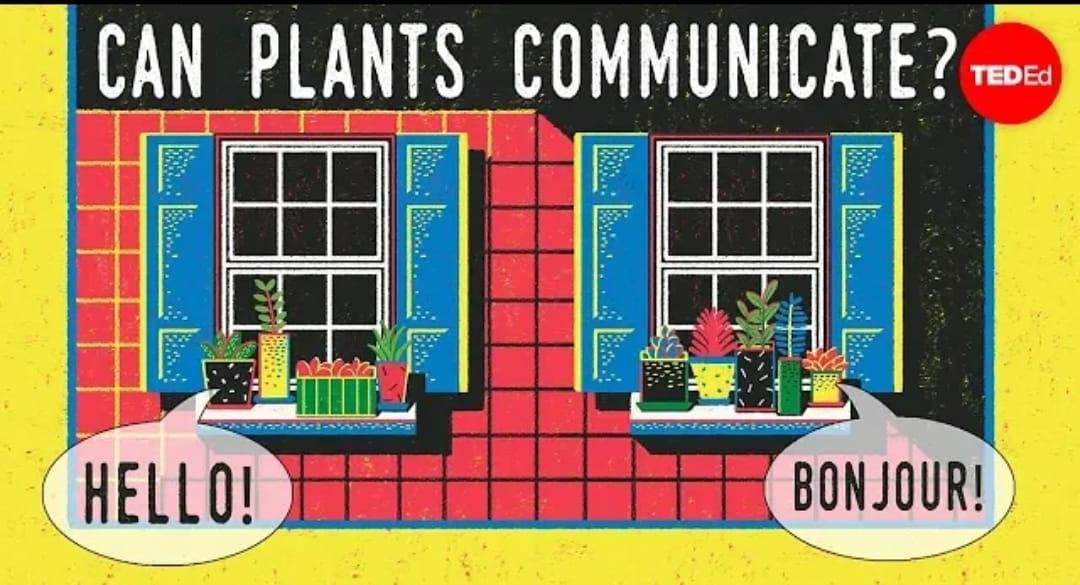Have you ever stopped to ponder the silent conversations happening beneath your feet, amongst the roots of the towering trees that adorn our landscapes? Recent research has unveiled a fascinating world of interconnectedness, communication, and even emotion among trees, challenging our perceptions of plant life.
A reserch notes that trees are social, sophisticated and intelligent. They cooperate with each other and maintain relationships. They do this by sending chemical, hormonal and electrical signals. Not only do they communicate underground, they send pheromones and other scent signals through the air.
Trees secretly talk to each other underground. They're passing information and resources to and from each other through a network of mycorrhizal means fungus and riza means root in Greek—a mat of long, thin filaments that connect an estimated 90% of land plants.
According to scientific evidence, trees are way more intelligent than we have ever imagined. ... Trees can feel pain, and they have emotions, such as fear. They like to stand close to each other and cuddle. Trees adore company and like to take things slow.
Don't look now, but that tree may be watching you. Several lines of recent research suggest that plants are capable of vision—and may even possess something akin to an eye, albeit a very simple one.
Do Plants React to Human Voices? Here's the good news: plants do respond to the sound of your voice. In a study conducted by the Royal Horticultural Society, research demonstrated that plants did respond to human voices.
Rather, sound waves stimulate the plant's cells. When the cells are stimulated by the sound, nutrients are encouraged to move throughout the plant body, promoting new growth and strengthening their immune systems. Believe it or not, studies indicate that plants also seem have a specific taste in music!
Plants thrive when they listen to music that sits between 115Hz and 250Hz, as the vibrations emitted by such music emulate similar sounds in nature. Plants don't like being exposed to music more than one to three hours per day. Jazz and classical music seems to be the music of choice for ultimate plant stimulation.
As we continue to explore the mysteries of the natural world, let us marvel at the hidden wonders of the forests and cherish our connection to the vibrant tapestry of life that surrounds us.
SO SAVE TREES AND DO YOUR PART FOR THE ENVIRONMENT AND SCIENCE
The Secret Lives of Trees: Unveiling the Social, Intelligent World of Plant Communication
Posted 2024-06-10 09:59:55

Most Recent
Top Comments
Record
Recording 00:00
Commenting has been turned off for this post.
- Samanvi RachaWowWow
- Like
- Reply
- 2024-06-10 10:03:36
-
Categories
- Sustainability
- Home
- Wellness
- Theater
- Sports
- Shopping
- Religion
- Party
- Other
- Networking
- Music
- Literature
- Art
- Health
- Gardening
- Games
- Food
- Fitness
- Film
- Drinks
- Dance
- Crafts
- Causes
Read More
The Royal Bengal Tiger: A Majestic Predator of the Indian Subcontinent
The Royal Bengal tiger (Panthera tigris tigris) is one of the most iconic and awe-inspiring...
Fitness
Hi my name is Vedansh.I am nine year old. I do karate 🥋for my fitness. It teaches me self...
Save trees 🌴🌴🌴
Here's a short and sweet article on saving trees:
Save the Trees
Trees give us...
Save our trees
Our trees are like our best friends,they always help us and never ask for anything in return of...
ENVIORMENT SUSTAINIBILITY
Environmental sustainability involves managing our natural resources to meet...
×
Your daily access limit has been reached. Please try again tomorrow.
© 2025 GoSharpener Pvt.Ltd.
Refund and Cancellation policy - We do not entertain any refunds and cancellation
Refund and Cancellation policy - We do not entertain any refunds and cancellation
